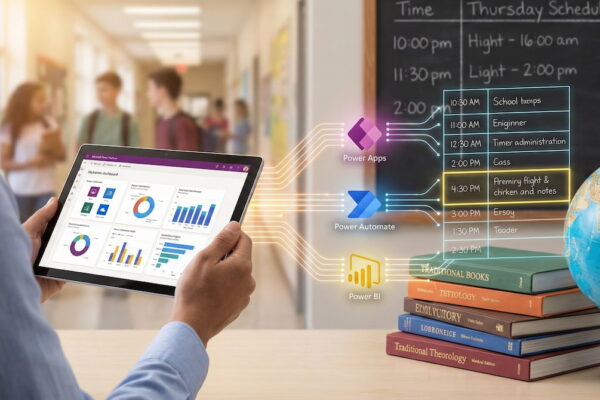What is the difference between data center and cloud?
With growing use of computers and creation of new hardware software, a host of terminology is being coined or old words are acquiring new meaning in the IT context. The best example is ‘mouse’, which originally meant a tiny rodent but has now come to mean an important part of a computer that helps to navigate on the monitor screen. It is necessary to understand the new words and concepts exactly so that they are used appropriately. There is a lot of confusion especially between the terms ‘data center’ and ‘cloud’. Incidentally, the latter word does not merely refer to a rain cloud; in the context of IT, it has assumed a new meaning. People tend to use the terms data center and cloud interchangeably because data is stored in both. However, there is significant difference between the two.
What is ‘cloud’?
‘Cloud’ refers to a server that is located somewhere in outer space, in a remote location, called a ‘cloud’. One cannot point out exactly where it is. Just as we believe that God exists somewhere in heaven which is supposed to be high up, the IT cloud exists somewhere high up. Just as God controls the life of people on earth remotely, the cloud controls computer operations and functions remotely. God is omnipresent and so is the cloud. God created human beings who created the cloud. You can connect to God with a prayer; you can connect to the cloud with the internet. While God gives momentum to life, the cloud gives momentum to computerised functions. God exerts power over human life; the cloud exerts power over all the computers that are connected to it. Will it be an exaggeration to say that the cloud is an IT God?
What is a data center?
A data center is a relatively old, traditional concept. The analogy of an administrative block would be apt to describe a data center. Just as all activities related to an institute are coordinated, initiated and concluded in an administrative block, all data is generated, stored, distributed from a data center. Just as an administrative block confines its functions to one particular organization, a data center stores, manages and disseminates data pertaining to a particular body of knowledge or a particular business. It is a kind of centralised repository, either physical or virtual. It is like the brain of the company where most of the critical processes are run.
What happens in a data center?
All the phones in an organization are connected to a board operated by the telephone operator who manages all the connections and calls. Similarly, initially, the big computers in an organization were installed in a special computer room called the server room or data center. A data center consists of a strong, well-protected room; it houses servers, cable devices, storage facility and internet connection. It also consists of arrangements for power supply, cooling and fire extinguisher. A data center provides protection from damage, theft, accidental or intentional manipulation of hardware. A computer system also needs periodic back-up for smooth functioning. All these responsibilities are assigned to the data center.
A data center centralises the IT operations and equipment in an organization. The most critical systems of a network that are vital to daily operations are housed in a data center. Alternatively, the modern cloud technology implies data center as a pool of cloud infrastructure resources. They are specifically designed to meet the needs of a particular enterprise. The resources include computing, storage, memory and bandwidth. Data center is synonymous with network operations center (NOC), a restricted access area containing automated systems that constantly monitor server activity, Web traffic, and network performance.
Differences between a data center and cloud
Both data center and cloud refer to the same infrastructure and both store data. Except these two similarities, they are quite different from each other. Data center refers to onsite hardware while cloud refers to offsite hardware and server.
| DATA CENTER | CLOUD |
| On premise | Off premise |
| In house services | Cloud computing services are outsourced |
| Servers and equipment are physically stored in a data center | Cloud service providers use data centers to house cloud services and cloud-based resources |
| Only one data center in one organization | Vendors often own multiple data centers in several geographic locations to safeguard data availability |
| It has limited capacity. Once it is installed, one cannot change the storage capacity or upgrade facilities | Unlimited data storage since no physical space is occupied |
| New equipment has to be purchased and installed for adding facilities.
|
A cloud system is scalable to your business needs, has potentially unlimited capacity, based on your vendor’s offerings and service plans. |
| Offers complete control over data | No control over data. Details have to be shared with the service provider |
| Data center is physically connected to a local network | Cloud can be located in several data centers in different locations |
| Company is responsible for its own security | Data is available to anyone |
| Single entry or exit point | Several entry/exit points |
It can be observed that in spite of some overlapping functions, there is a vast difference in the structure and functioning of a data center and cloud. Of course, the latter is more cost effective than the former, especially for small companies. Huge investments are required for setting up a data center. Each has its own advantages. You can decide whether your company needs cloud services or not depending upon your business size and needs, security required and costs. While data center is a private affair confined to the organization, cloud can be private or public; however, a private cloud is very expensive. A data center is also more suitable for organizations that run many different types of applications and complex workloads.
Zerone HiTech, SQL Azure provides organizations with all the benefits of an enterprise-class data center without the hassle, headaches, and cost of maintaining such an entity. You get high availability and reliability with redundant copies of your data and automatic failover. No more worries about backing up data yourself.



